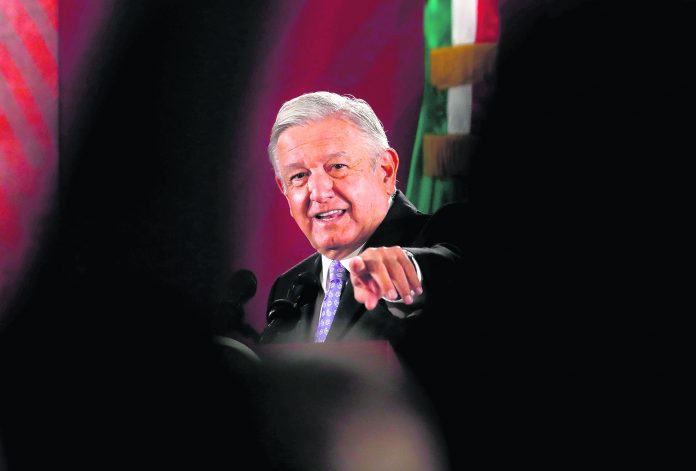
Mexican President Andrés Manuel López Obrador faced criticism Thursday over the newly appointed head of the country’s human rights agency.
López Obrador vowed respect for human rights when he took office nearly a year ago.
But he has criticized the National Human Rights Commission in crude terms and brushed aside its recommendations, calling it a “pimp” and a “front” organization.
This week, his Morena party pushed through Congress the appointment of a new head for the rights agency who critics say is neither impartial nor familiar with the country’s problems.
Rosario Piedra Ibarra, the daughter of a well-known activist, was confirmed by the Senate Tuesday in a vote marred by allegations of miscounts and double-voting, ending in a scuffle among legislators.
Moments after she was sworn in as head of the agency — whose recommendations are not binding but are usually accepted by government agencies — Piedra Ibarra expressed disbelief when asked about the killing of journalists.
“Are they killing journalists?” she retorted, with an expression of doubt.
In fact, almost a dozen have been killed since López Obrador took office. Mexico is the most dangerous country for journalists in the Western Hemisphere.
Piedra Ibarra was a member of López Obrador’s Morena party until this week, and a member of the party’s national leadership council until the beginning of November. Critics say current regulations require the head of the commission to have resigned from any party posts at least a year in advance of being named to the post.
López Obrador had previously faced criticism for his use of the military in police work and for using the militarized National Guard to prevent Central American migrants from travelling through Mexico. But his policy has also been to hold the military back from open confrontation, to the point of praising units that backed down in the face of angry townspeople or drug gangs.
On Thursday, the president stood behind Piedra Ibarra’s appointment and said those who didn’t like to could file complaints with international organizations such as the Organization of American States.
He harshly criticized non-governmental organizations that objected to Piedra Ibarra’s marred election, saying they had done little to fight the excesses of past administrations.
“They disguised themselves as civic groups, when in reality they were acting, openly or clandestinely, in favor the ruling regime,” he said.
The president railed against independent regulatory agencies that have sought to limit some of the president’s more extravagant projects.
“These are all agencies that were created to act as if they were protecting human rights,” he said.
López Obrador’s natural instinct of austerity abhors the high paychecks that government regulatory agencies have long received. Often educated abroad and part of the elite, regulators and heads of NGOs seldom lived in close contact with the poor.
“They talk about defending democracy, but it was all about their pocketbooks,” Federico Estevez, a political science professor at the Autonomous Technological Institute of Mexico, said of some regulatory agencies.
But Estevez also said the president doesn’t like taking pointers on ethics or morality from anyone else.
“He is our president-preacher, after all,” noted Estevez.
López Obrador currently enjoys high approval ratings, but analysts believe his pugnacious attitude toward opponents could eventually cost him.
“This is polarizing, and not just at the rhetorical level,” Estevez said, noting: “You’re going to see polarization on the streets.”q
















